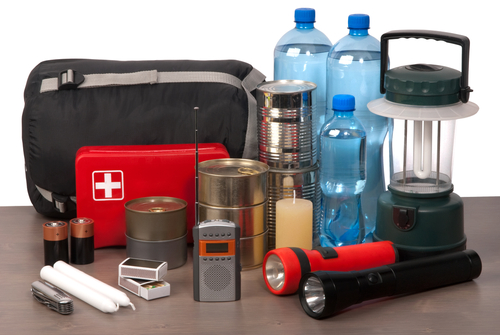Natural Disasters: Experiencing And Dealing With Them
 The count of natural disasters has increased majorly in the past few decades, with reports of these disasters being bigger and much worse than before. The main cause for concern isn’t global warming or the Nano weather effect here; it is more related to the fact that we keep on building in dangerous areas and we build carelessly, at least in the case of floods. The only thing that we can do is to predict these disasters, take steps to minimize the damage and make the economy stronger to deal with displacement and rehabilitation. This article discusses the different aspects of relief and rehabilitation in conjunction with the aftermath.
The count of natural disasters has increased majorly in the past few decades, with reports of these disasters being bigger and much worse than before. The main cause for concern isn’t global warming or the Nano weather effect here; it is more related to the fact that we keep on building in dangerous areas and we build carelessly, at least in the case of floods. The only thing that we can do is to predict these disasters, take steps to minimize the damage and make the economy stronger to deal with displacement and rehabilitation. This article discusses the different aspects of relief and rehabilitation in conjunction with the aftermath.
Human beings are not meant to physically struggle against nature and its wrath. However, we do possess higher intellect than other species in the animal kingdom and hence, we can fight nature mentally, by planning ahead and using our cunning to avoid the bad side of nature. In a lot of ways, the natural disasters that now hit the earth are a consequence of man abusing his intellect and power over nature and nature just lashing out in return. It is not just enough to argue about what has been causing this disparity in the human-nature balance and how it all began; in fact, this argument has now become redundant. The only valid discussion that remains now is how to prepare for such calamities that take hundreds of lives in a matter of minutes and how to rehabilitate the victims for a sustainable future.
A natural disaster is basically described as any naturally occurring event that destroys human life and population, killing hundreds and injuring even more, all the while causing destruction in other aspects like buildings. Such events basically then displace the victims and take a toll on any country’s economy because of the destruction of infrastructure. Over the past few decades, the number of natural disasters has gone up to 11 annually in every country, an astonishing figure. Currently, the most common natural disaster is flooding followed by others such as hurricanes, earthquakes, tsunamis, etc. While there are ways to predict these disasters and prepare for them beforehand, these ways are only actively used in the first world and nothing can prepare you for the shock of actually dealing with the disaster.
In the aftermath of a disaster, there are two major concerns: the first one is to provide immediate relief to the victims in order to ensure their survival. This is known as giving out core relief items, a list that is approved and sanctioned by the UNHCR that includes material things such as blankets and tents. There are many organizations internationally that manufacture and store these items so that in the event of a disaster, they can efficient dispense these items and provide relief. The second concern is to rehabilitate the affected. This involves long term planning and donating money in order to ensure a good life for the victims.
While core relief items provide physical relief and ensure immediate survival, rehabilitation covers a broader aspect with the affected. Rehabilitation is meant to provide future physical relief and direction and also psychological comfort and well-being. While the former part is still adhered to, many people forget that the latter is just as equally important. After any disaster, survivors tend to go through PTSD and restoring their psychological well-being is necessary for building a functional society. Most commonly survivors report feeling a sense of insecurity and alienation after natural disasters and to integrate them back in to the society as functional members, these feelings have to be dealt with. In conclusion, while physical rehabilitation is of utmost importance, so is psychological well-being.
Source: Free Articles from ArticlesFactory.com
Did you enjoy this post? Why not leave a comment below and continue the conversation, or subscribe to my feed and get articles like this delivered automatically to your feed reader.


Comments
No comments yet.
Leave a comment